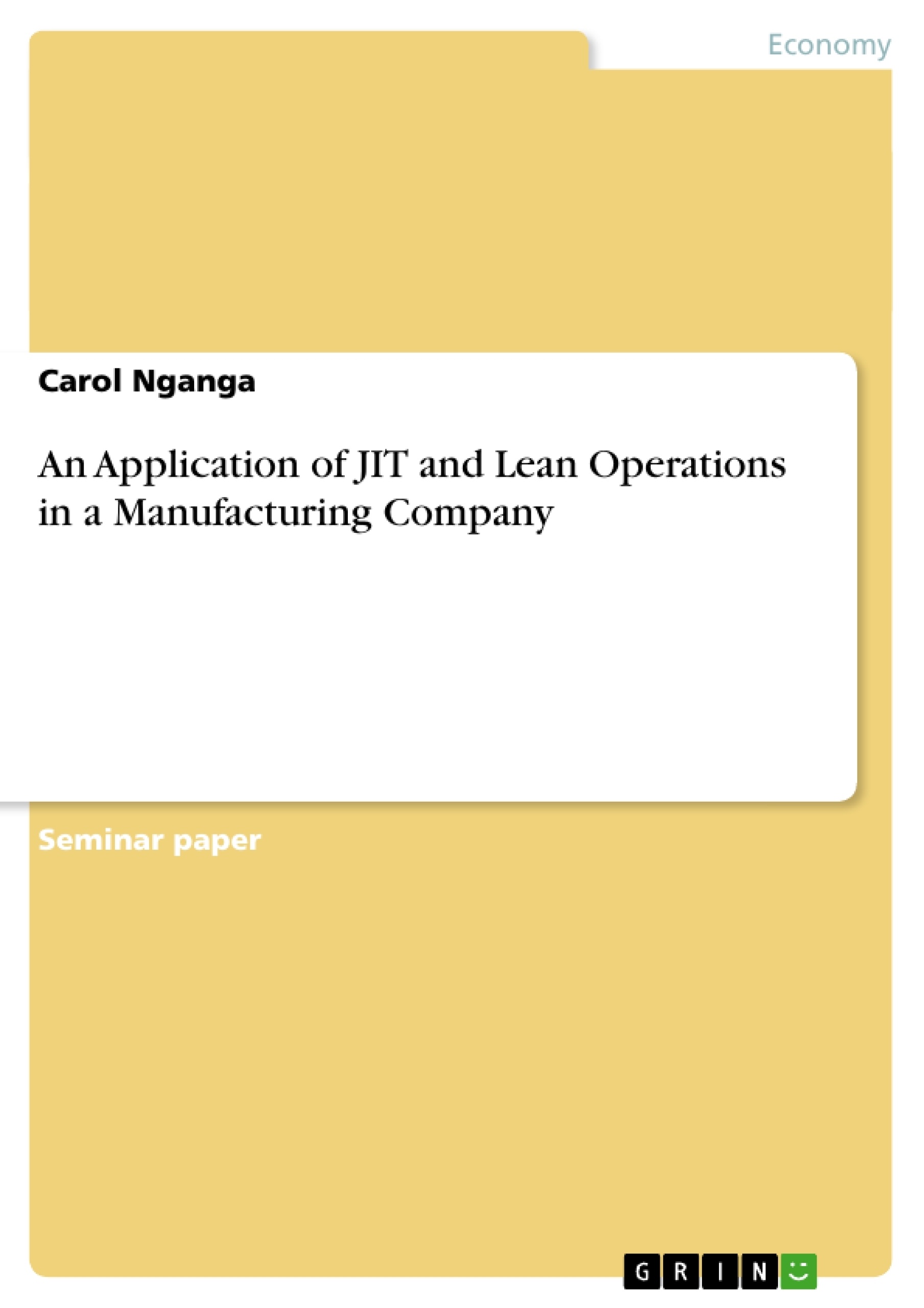Globalization of businesses has provoked the development of international supply chains. A Supply chain manages all the activities aimed at meeting the customer needs and maximizing the effectiveness of the process. This process starts from the extraction of raw materials to the customer receiving the finished good. Its aim is to satisfy the customer. Supply chain management aims at the company achieving a sustainable competitive advantage. This has initiated the application of just-in-time systems.
Just-in-time is an inventory scheduling technique. It was developed as an operations control and planning philosophy that assisted manufacturers attain consistent improvement in quality of products and productivity of the processes. JIT encompasses stock less production and zero inventories. It broadly focuses on elimination of waste from producing more than is required, waiting time, waste on transportation cost, inventory, processing and product defects throughout the organization.
JIT philosophy encompasses the following principles. The first principle is the operation excellence which requires the organization to be committed to continuous process and product improvement at all departments focusing on proper customer services. The second principle is value added processes which ensures that those processes that add no value to the customer or product are eliminated as they only add on cost of production; every aspect of the processes in the organization should be aiming at continuous improvement. Lastly, JIT techniques are focused towards total quality management and empowerment of employees (Ross, 2004).
Table of Contents
- Globalization of Businesses and Supply Chain Management
- Just-in-Time (JIT) Techniques
- Lean Operations
- Operation Efficiency
Objectives and Key Themes
This text examines the application of Just-in-Time (JIT) and lean operations in a manufacturing company, particularly in the context of personal computer production. The author aims to demonstrate how these principles can be used to improve operational efficiency, reduce costs, and enhance customer satisfaction.
- Just-in-Time (JIT) techniques
- Lean operations philosophy
- Operational efficiency through waste reduction
- Customer satisfaction and competitive advantage
- Employee empowerment and training
Chapter Summaries
- Globalization of Businesses and Supply Chain Management: The text introduces the concept of globalization and its impact on supply chains. It emphasizes the importance of effective supply chain management for achieving customer satisfaction and sustainable competitive advantage.
- Just-in-Time (JIT) Techniques: This section explains the principles of JIT, including stockless production, zero inventories, and the elimination of waste. It highlights the importance of continuous improvement, value-added processes, and total quality management in the implementation of JIT techniques.
- Lean Operations: The text discusses the similarities and differences between JIT and lean operations. It emphasizes the elimination of non-value-added activities, continuous improvement, and customer-centricity as key aspects of lean operations.
- Operation Efficiency: The final section explores the benefits of applying JIT and lean operations in achieving operational efficiency. It highlights the reduction of waste, increased productivity, and improvement in customer satisfaction as key outcomes.
Keywords
Key terms and concepts explored in this text include Just-in-Time (JIT), lean operations, supply chain management, operational efficiency, waste reduction, customer satisfaction, employee empowerment, and competitive advantage.
- Quote paper
- Carol Nganga (Author), 2012, An Application of JIT and Lean Operations in a Manufacturing Company, Munich, GRIN Verlag, https://www.grin.com/document/280539




